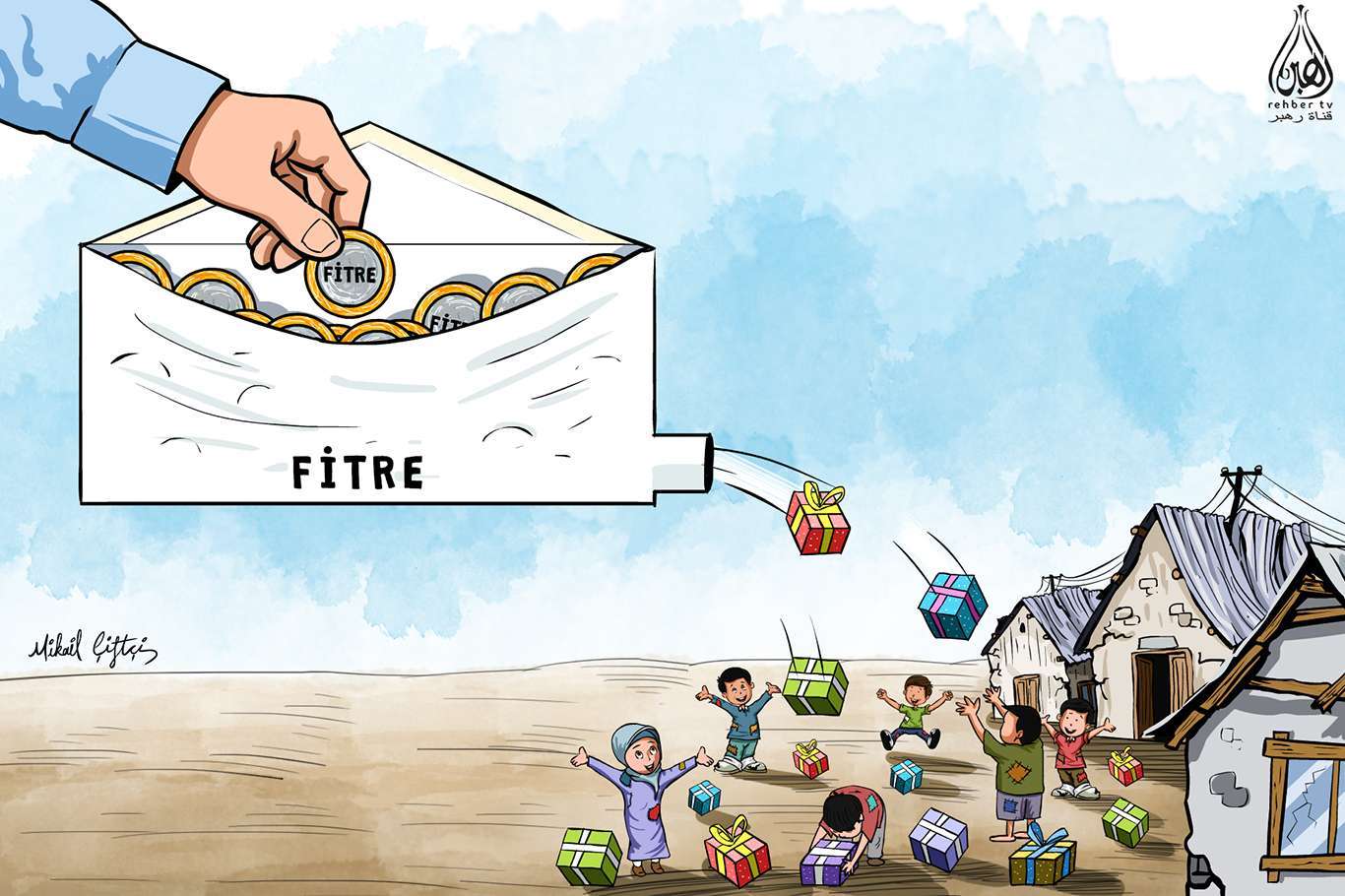What is Zakat al-Fitr in Islam?


The purpose of Zakat al-Fitr is to enable poor people to celebrate Eid al-Fitr, the festival to break the fast of Ramadan.
In Islam, Zakat al-Fitr (Zakat of Breaking the Fast of Ramadan), also known as Sadaqat al-Fitr (Charity of Breaking the Fast), is an obligatory form of alms-giving required of every able Muslim at the end of Ramadan.
This form of charity becomes mandatory from sunset on the last day of fasting and remains so until the beginning of Eid prayer (i.e., shortly after sunrise on the following day).
However, it can be paid prior to this period. Some of the Sahabah (companions of the prophet Muhammad) paid it a couple of days before Eid al-Fitr.
The amount of Zakat is the same for everyone regardless of their income: the minimum amount is one sa` (four double handfuls) of food, grain, or dried fruit for each member of the family, or an equivalent amount of money.
Zakat al-Fitr is a duty that is wajib (required) of every Muslim. If one misses the time period without a good reason, they have sinned and must make it up.
According to Islamic tradition (Sunnah), Ibn 'Umar said that Prophet Muhammad (PBUH) made Zakat al-Fitr compulsory on every slave, freeman, male, female, young and old among the Muslims.
The head of the household may pay the required amount for the other members.
Abu Sa'eed al-Khudree, a companion of Prophet Muhammed (PBUH), said: “On behalf of our young and old, free men and slaves, we used to take out during Allah's Messenger's (upon whom be God's peace and blessings) lifetime one Saa` of grain, cheese or raisins.”
The main purpose of Zakat al-Fitr is to provide the poor which they can celebrate the festival of breaking the fast (`Eid al-Fitr) along with the rest of the Muslims.
Every Muslim is required to pay Zakat al-Fitr at the conclusion of the month of Ramadan as a token of thankfulness to God for having enabled him or her to observe the obligatory fast. (ILKHA)
LEGAL WARNING: All rights of the published news, photos and videos are reserved by İlke Haber Ajansı Basın Yayın San. Trade A.Ş. Under no circumstances can all or part of the news, photos and videos be used without a written contract or subscription.
The martyrdom of Hamas leader Yahya Sinwar, announced on Friday, marks a significant moment in the ongoing Palestinian resistance against the Israeli occupation.
More than a year after the Al-Aqsa Flood operation and the relentless onslaught by Israel in Gaza, Yahya Sinwar, the leader of Hamas, achieved martyrdom while courageously engaging Israeli occupation forces on the front lines in Rafah, southern Gaza.
The martyrdom of Hezbollah Secretary-General Sayyed Hassan Nasrallah, a symbol of resistance against zionism and imperialism, has sent shockwaves across Lebanon and the global community.
The Second Intifada, or Al-Aqsa Intifada, began on September 28, 2000 when Ariel Sharon, the former prime minister of the Israeli occupation regime, defiled the Al-Aqsa Mosque.